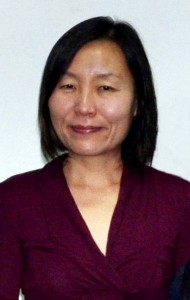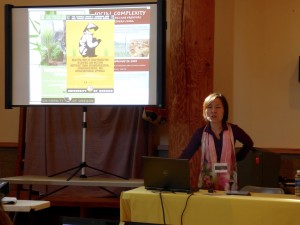Gyoung-Ah Lee is an archaeologist investigating ancient human-environment interactions and cultural niche construction in prehistoric Asia. Her work deals primarily with the long transition from hunting and gathering to dependence on farming for food, and has been featured in media outlets ranging from scientific journals to NPR. While focused in Asia, her research spans the globe, and she has led archaeological projects and participated in excavations in Australia, Canada, China, Indonesia, Korea, and Vietnam. Since 2007 she has been based at the University of Oregon, in Eugene, as a member of the faculty of Anthropology.
Dr. Lee’s topical interests include paleoethnobotany, paleoenvironment, social complexity in early states, transition from foraging to food production, traditional farming technologies, phylogenetics of crops, labor organization, ideology of food, gendered archaeology, and quantitative archaeology. Her chronological and geographic interests include Neolithic, Bronze, and early historical periods in Korea; the Neolithic to Shang periods in China; Jomon-Yayoi periods and Ainu history in Hokkaido; and Late Woodland & Iroquoian tradition in the eastern North America.


